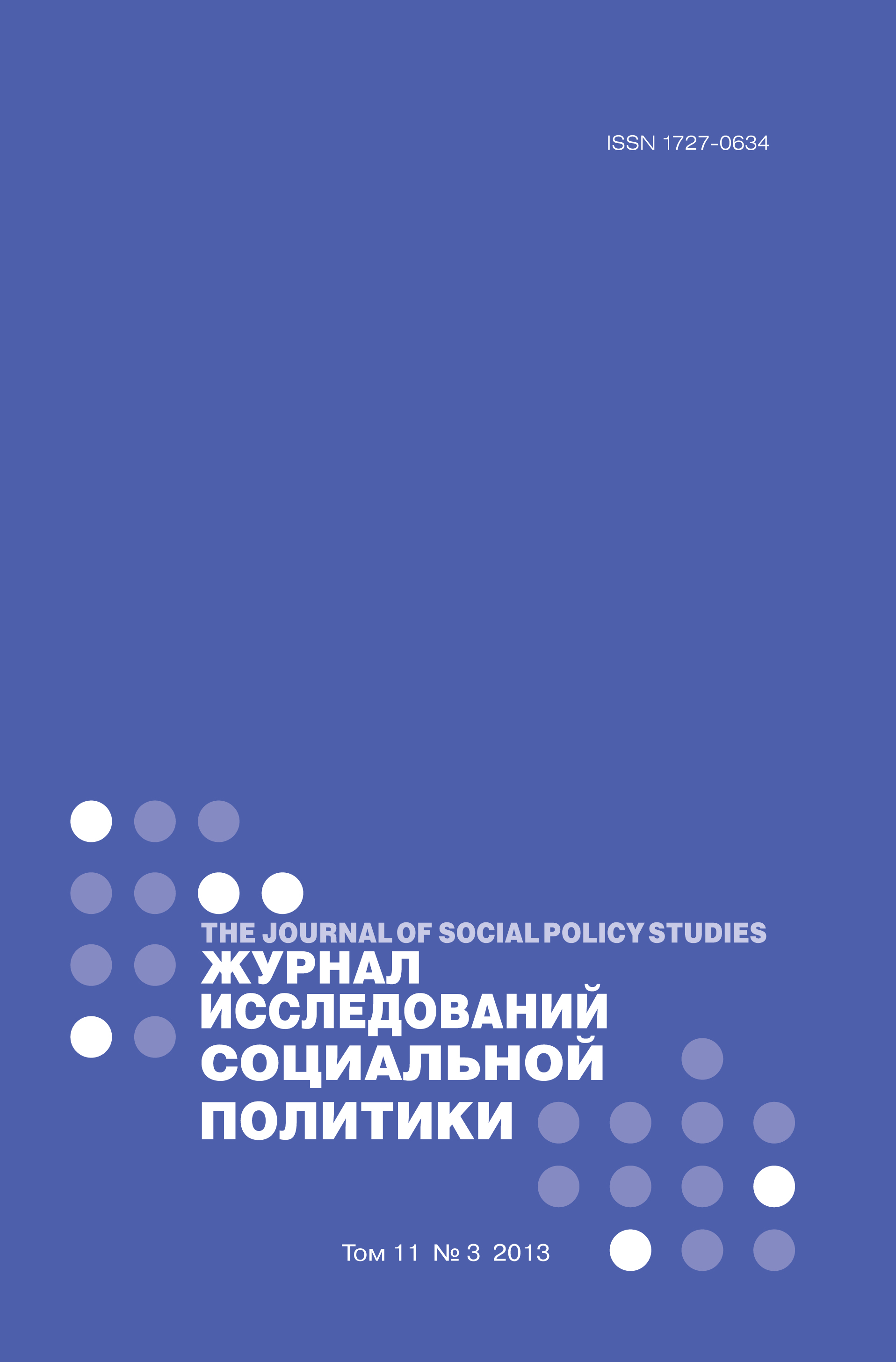Non-Market Factors of Poverty in Modern Russia and Ways to Improve Social Policy
Abstract
Poverty remains a huge issue for Russian society and much of the problem must be seen in the vastly differing statistics available on what is happening to poverty rates, with one set of data showing that it is reducing and another warning of its increase. One of the key problems in this is how the social policy of the Russian state prefers to treat poverty as a purely economic issue, when in fact it is a more complex phenomenon than merely a person earning less than a subsistence wage. This article seeks to clarify how the issue of poverty is dealt with in Russia and characterize the specific features of its poorest strata. As these results will vary depending on the theoretical and methodological approaches to poverty, an overview of the main two theoretical approaches, referred to as the ‘absolute’ model and the ‘deprivation’ model, is provided. Then data is for Russian poor is classified according to these theoretical frameworks. The empirical base of the research is ‘Russian Longitudinal monitoring survey’, which was carried out over the years 2005 to 2011. The paper analyses the driving factors of poverty, which increase the probability of falling into poverty in modern Russia. Much attention is given to assessing the current efforts of the state to reduce the risk of poverty and assessing how state assistance can be used to overcome difficulties. The non-economic factors observed include household size, the composition of the family, gender, the level of risk in the family and the type of home available to dependents. What emerges is that Russian poverty is very diverse and heterogeneous and thus requires a multi-layered approach to deal with it. The problem lies in the current inadequate methods of measuring poverty, which leads to a wasteful and ineffective social policy not directed at the priority groups. More accurate means of measuring chronic poverty can allow those suffering from illness to be targeted for help.















